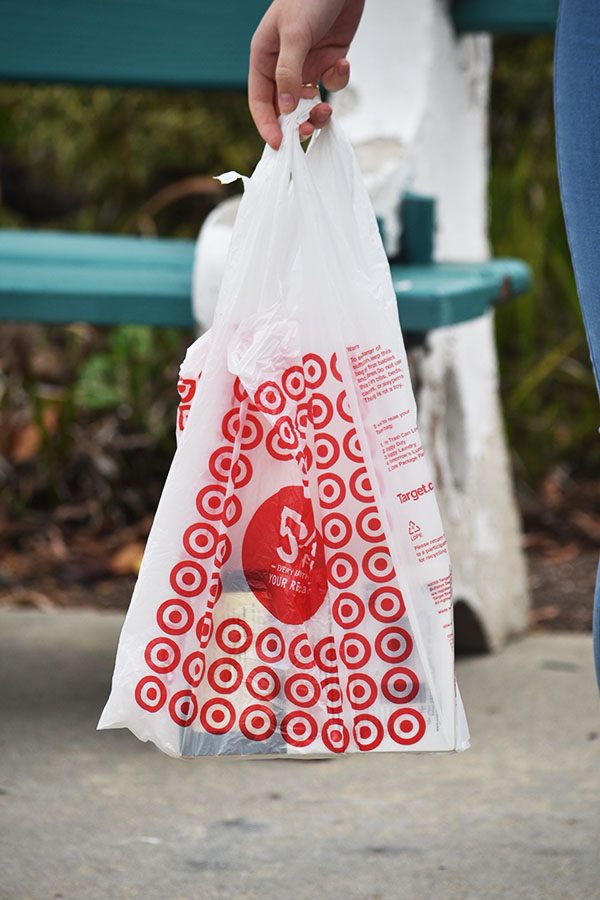Two propositions involving disposable plastic bags are up for vote in the state of California, but may confuse voters who try to decipher their meanings.
Proposition 67 and 65 both confront Senate Bill (SB) 270, a law passed in 2014 that bans single-use plastic bags from stores and requires them to charge customers a minimum of 10 cents for a non-plastic bag.
If Prop. 65 passes, but Prop. 67 does not, single-use plastic bags would not be banned.
Proposition 67: Ban on single-use plastic bags, referendum
Prop. 67 is a referendum which allows citizens to vote on whether or not California should uphold SB 270.
SB 270 prohibits stores that have a specified amount of sales in dollars or retail floor space from giving out single-use carry out bags to its customers.
A yes on the referendum would put SB 270 into motion. Stores would only be allowed to sell reusable bags and recycled paper bags, of which they would have to charge a minimum of 10 cents.
A no would discard SB 270 and allow stores to continue providing single-use plastic bags to customers free of charge, unless local law prohibits it.
Supporters of this referendum argue Prop. 67 should be passed to continue the effort in phasing out single-use plastic bags. They said plastic bags are harmful to wildlife, raise the cost of trash clean up, litter communities and clog recycling machines.
Those against the proposition said passing Prop. 67 is a hidden tax on consumers, and argue none of the money will go to environmental efforts.
Votersedge.org states companies like Safeway, Ralphs and the California Grocers Association support the referendum.
Proposition 65: Carryout Bags, charges and initiative statute
SB 270 allows stores to keep the revenue gained from the 10 cent charge, but only to encourage the use of reusable bags.
Prop. 65 is an initiative in response to the 10 cent bag charge presented in SB 270 but would only go into effect if certain bags are banned and others require a fee, such as if Prop. 67 is passed.
The goal is to redirect the money to environmental organizations instead of stores.
A yes vote on the initiative would redirect the bag revenue to a state funded Wildlife Conservation Board if there is ever a statewide ban on single-use plastic bags.
A no vote would allow the money to remain with the stores required to charge for recycled bags.
Proponents of this initiative believe that grocery stores should not profit from a statewide tax.
Those against the proposition say that it is not a ban on bags, but rather a way for plastic companies to distract voters from phasing out single-use plastic bags altogether.
Votersedge.org wrote companies like Formosa Plastics, Superbag and Advance Polybag have made monetary contributions in favor of Prop. 65.
Boiling it down
If Prop. 67 passes, but Prop. 65 does not, single-use plastic bags will be banned in California and a minimum of 10 cents will be charged for recycled paper bags.
If both Propositions pass, but 67 receives more votes, the money will remain with the stores. If Prop. 65 receives more votes, the money will go to environmental programs.
Nutrition sophomore Itzel Esparza Esparza said she still sees use in plastic bags.
“We usually use the bags for different things at home, like storage,” Esparza said. “It’s not like we toss them away.”
John Mercurio, political science professor at SDSU, said he thinks the plastic bag ban is a step in the right direction.
“I voted for 67 rather than 65. I think banning [single-use plastic bags] makes a lot of sense because it’s going to force me to be more aware,” Mercurio said. “I never remember to bring [reusable bags] with me. This will forcibly change my behavior in what I think is a positive direction.”







